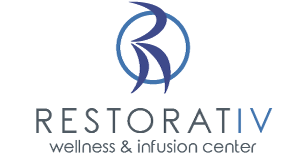Postpartum depression is referred to as a bleak period of melancholy that a woman struggles with after birth. There is often a tendency for mothers to dismiss the feelings amidst the chaos of having a newborn child, when in reality it should be treated as a major psychiatric condition that affects more than just the mother. An exact statistic is unknown, but a recent study concluded that 1 and 7 women may be impacted by the “baby blues.” Medical experts are realizing that education and awareness of postpartum depression are key steps in supporting families when combatting this overlooked disorder. There was a recent study conducted by Ruth Feldman and her colleagues that talks about how a mother’s depressive state can impact her child— both biologically and emotionally.
125 mother-child pairs were used for this study, and were recruited from birth. Stress factors and immune biomarkers were analyzed through the saliva samples of the mothers and their children. The higher levels of immunoglobin A (Ig-A) and cortisol in the mother negatively impacted these levels in their children, which could contribute to emotional instability and various behavioral issues during early, developmental years. In addition, the depression experienced by these mothers could lead them to be overcritical and express intrusive emotions towards their offspring, potentially resulting t in the child internalizing issues and externally showing negative behavioral outbreaks.
As scientists recognize the increasing statistics of reported postpartum depression, their efforts to educate the public grow. There are a variety of treatments for depressive symptoms that include: support groups, therapy sessions, anti-depressants, and other pharmacological medications. Therapy sessions and support groups are a great option to help cope with the symptoms through building a relationship with others who are struggling with the same issues. However, due to the wide range of responses that patients have to different antidepressants and anti-anxiety medications, it is important to investigate multiple options.
On alternative is ketamine infusions – a series of injections administered under close clinical supervision—that are proven to rapidly reduce depressive symptoms. The success stories show us that the results of ketamine infusions can be miraculous. Ketamine shows success in about 70% of patients and is less likely to cause addictive tendencies. Postpartum depression is usually temporary, which means you may only need to have the first 4 to 6 recommended infusions to see optimum and lasting results that may help you again enjoy the moments with your growing family!
Contact RestoratIV Wellness & Ketamine Clinic
RestoratIV Wellness is New Jersey and the greater Philadelphia area’s leading provider of ketamine infusions for depression and chronic pain. Call us today to schedule a free consultation with one of our clinical experts and learn more about what ketamine infusions can do for new mothers or other clinically depressed patients.


Recent Comments